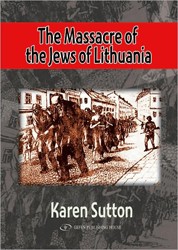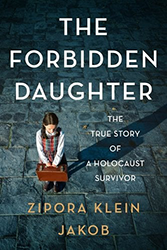This unusual book was composed by members of the Jewish police force who served in the Kovno Ghetto from August 1941 until March 1944, when the Nazis murdered its leadership. The writers of this riveting document were determined to provide a truly balanced history of the Jewish police force as it interacted with ghetto inhabitants, the Nazi occupiers, and their Lithuanian auxiliaries — virulent anti-Semites whose violence against Jews shocked even their German masters. The chronicle is also a refutation of Raul Hilberg and Hannah Arendt, whose works were highly critical of the Jewish councils and the Jewish police leadership in the ghettos. One distinguished Holocaust historians, Samuel Kassow, notes in his introduction to the book that “the chronicle… serves as a caution not to rush to blanket judgments of the Jewish police — or of the Jewish ghetto leadership. Each ghetto had its own context and circumstances.”
True, the Jewish council in Kovno was very different than Rumkowski’s leadership in the Lodz ghetto. Given that the Nazis established more than 15,000 concentration camps in German-occupied Europe, Kassow is on firm ground when he accuses Hannah Arendt of being simplistic when she wrote in Eichmann in Jerusalem that “had the Jews refused to establish Jewish councils…and simply scattered, many would have died, but far fewer than six million would have been murdered by the Germans.” Elsewhere, Arendt wrote that “To a Jew, this role of the Jewish leaders in the destruction of their own people is undoubtedly the darkest page in the whole dark story.” Kassow argues, as evidenced in the Jewish police history, that they had to function “within a zone of choice-less choices.”
These chronicles offer a rare glimpse into the complex situation faced by the Kovno Ghetto leadership: caught between the brutality of their Lithuanian and German captors, the Jewish policemen attempted to mediate between the demands of the occupiers and the anger of the ghetto population. The book describes the arbitrary manner of the Germans wherein, at a moment’s notice, the Nazis demanded that the Jewish council round up Jews for deportation to the death camps. Similarly, the authors illustrate the cruelty involved in the German demands for Jewish labor with the alternative of death for shirkers.
The secret history of the Jewish police is both a defense of their actions as well as a criticism of Jewish leaders who took advantage of their positions of authority. The chronicle captures an environment in which the irrational hatred of Jews by the native Lithuanian population and the organized Nazi killing machine made it virtually impossible for Jews to avoid the wanton death desired by their enemies. The Jewish councils and the Jewish police bought time for the Jews imprisoned in the ghetto, always hoping that either the Messiah or the Soviets would deliver them from the inevitable death that they faced on a daily basis.
Related Content:





